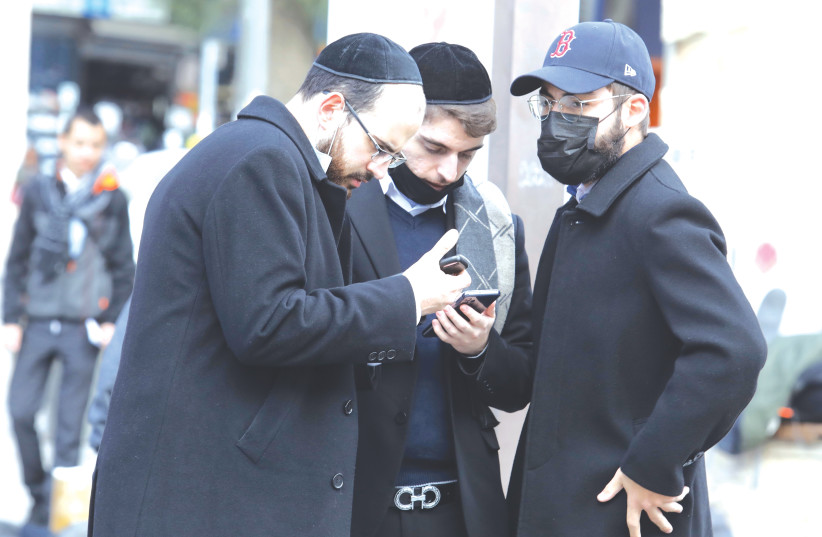How did a 20-year-old haredi young man with no education in math or science land a cutting-edge cyber security job at Synamedia, a leading international video technology company?
Last week, editor-in-chief Yaakov Katz wrote that prioritizing the integration of haredim into the workforce would transform the haredi community into one characterized by the “growth and success that can drive Israel forward in ways we cannot yet imagine.” At the Jerusalem College of Technology (JCT), we are not only imagining that growth, we are building that trajectory of success, daily.
JCT’s prioritization of both high-level Torah study and cutting-edge academia enables seamless integration of haredi men and women into our degree programs. And the numbers bear out our success. In 2001, JCT opened its first academic program for haredi men with 39 students.
Thanks to our outreach to the haredi community, in 2021 we had over 700 haredi men students, representing an increase of over 1,695 percent in 20 years. It is further worth noting that this year, JCT has over 2,000 haredi men and women studying for academic degrees at JCT across our three campuses, including a campus dedicated to educating haredi women in Bnei Brak.
As for economic impact – over 90% of JCT graduates obtain employment in their field of choice within a year of graduation. A JCT degree empowers haredi students to become contributing members of their community and Israeli society.

JCT continues to be a presence in the lives of our students well after graduation.
JCT'S Cyber Elite program
Take, for example, the members of our Cyber Elite program. Each year a cohort of outstanding recent graduates, who have completed degrees in software engineering or computer science is assembled. Those admitted to Cyber Elite split their week into two parts. Twice a week they are given intensive, additional advanced cybersecurity training and the rest of the week they work in research and development positions in Israel’s commercial and defense sectors.
Cyber Elite participants have served in research and development positions at leading cybersecurity companies, including Check Point, Cymotive, Intel, CYE, ARMO, Israel Aerospace Industries/Elta Systems, Rafael Advanced Defense Systems and Cellebrite.
This brings us to Yanki Taber who came to JCT, at age 22, with no background in math or science. After an intensive, year-long, college-preparatory course and a lot of hard work, Yanki thrived. Today, as part of Cyber Elite, Yanki is working on developing cyber technology at Synamedia, a leading international video technology company.
What motivated Yanki to enroll at JCT?
While working at a leather binding factory, he heard his coworkers complain that they could not provide for their families. Yanki did not want that to be his reality; he wanted to provide for his family financially without changing his spiritual lifestyle. Studying at JCT made that possible.
Beyond cybersecurity, many JCT graduates become leaders in the defense industry working toward the development of life-saving technologies like the Iron Dome and Arrow-3 missile defense systems. Several have earned the venerable Israel Defense Prize, awarded by the defense minister annually.
By providing haredi women and men an academic space where they know they do not need to compromise their lifestyle, their Torah study, or their academic education, JCT answers the unique needs of the haredi community as well as the needs of Israeli society.
What we are seeing is the turning of a tide. Not long ago, the prevailing wisdom was the Israeli haredi community would never enter academia or the Israeli workforce. The problem was bemoaned and seemed all but insurmountable. Today, JCT is proud to show that’s not the case.
The writer is president of the Jerusalem College of Technology.
